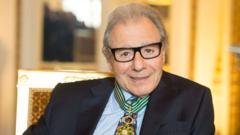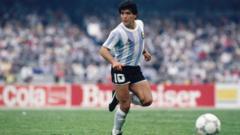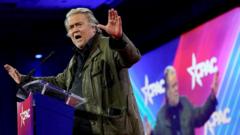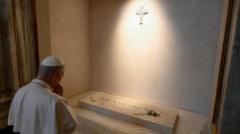Pope Francis, at 88 years old, faced severe health challenges during a critical hospitalization, with his medical team confirming he narrowly avoided death.
Pope Francis Defies Odds, Recovers from Near-Fatal Illness

Pope Francis Defies Odds, Recovers from Near-Fatal Illness
Doctors label Pope's recovery from hospitalization a "miracle" as he returns to the Vatican after battling pneumonia.
In a recent press conference, Dr. Sergio Alfieri, who led the medical team at Agostino Gemelli hospital in Rome, expressed astonishment at the pope's recovery. "It’s a miracle that he left the hospital," he stated, following Pope Francis's release after an arduous 38-day stay battling severe pneumonia.
During his stay, the pontiff endured significant health difficulties, including a critical breathing crisis that left him gasping for air and fearing for his life. His oxygen levels plummeted to a precarious 78, as he confided to his doctor about the reality of his situation. Remarkably, he had refused intubation, leading doctors to explore aggressive drug treatments despite associated risks to his organs, culminating in tear-filled eyes from aides present.
The situation took a harrowing turn when, just days after receiving treatment, the pope unexpectedly regurgitated and began choking. Doctors acted swiftly, performing procedures to clear his airway but worried about the effects on his already compromised lungs. However, in an unexpected twist of fate, he managed to stabilize.
Finally, after the grueling month, on a Sunday, Dr. Alfieri declared Pope Francis fit for discharge. While encouraging the pope to prioritize rest and recovery, he acknowledged the serious risks that were present, reiterating, “It was a miracle that he left the hospital,” assuring that the pontiff was no longer in imminent danger.
Pope Francis's health crisis has prompted discussions about his lifestyle habits and what changes he may need to embrace moving forward to maintain his health and continue his pastoral duties.
During his stay, the pontiff endured significant health difficulties, including a critical breathing crisis that left him gasping for air and fearing for his life. His oxygen levels plummeted to a precarious 78, as he confided to his doctor about the reality of his situation. Remarkably, he had refused intubation, leading doctors to explore aggressive drug treatments despite associated risks to his organs, culminating in tear-filled eyes from aides present.
The situation took a harrowing turn when, just days after receiving treatment, the pope unexpectedly regurgitated and began choking. Doctors acted swiftly, performing procedures to clear his airway but worried about the effects on his already compromised lungs. However, in an unexpected twist of fate, he managed to stabilize.
Finally, after the grueling month, on a Sunday, Dr. Alfieri declared Pope Francis fit for discharge. While encouraging the pope to prioritize rest and recovery, he acknowledged the serious risks that were present, reiterating, “It was a miracle that he left the hospital,” assuring that the pontiff was no longer in imminent danger.
Pope Francis's health crisis has prompted discussions about his lifestyle habits and what changes he may need to embrace moving forward to maintain his health and continue his pastoral duties.























